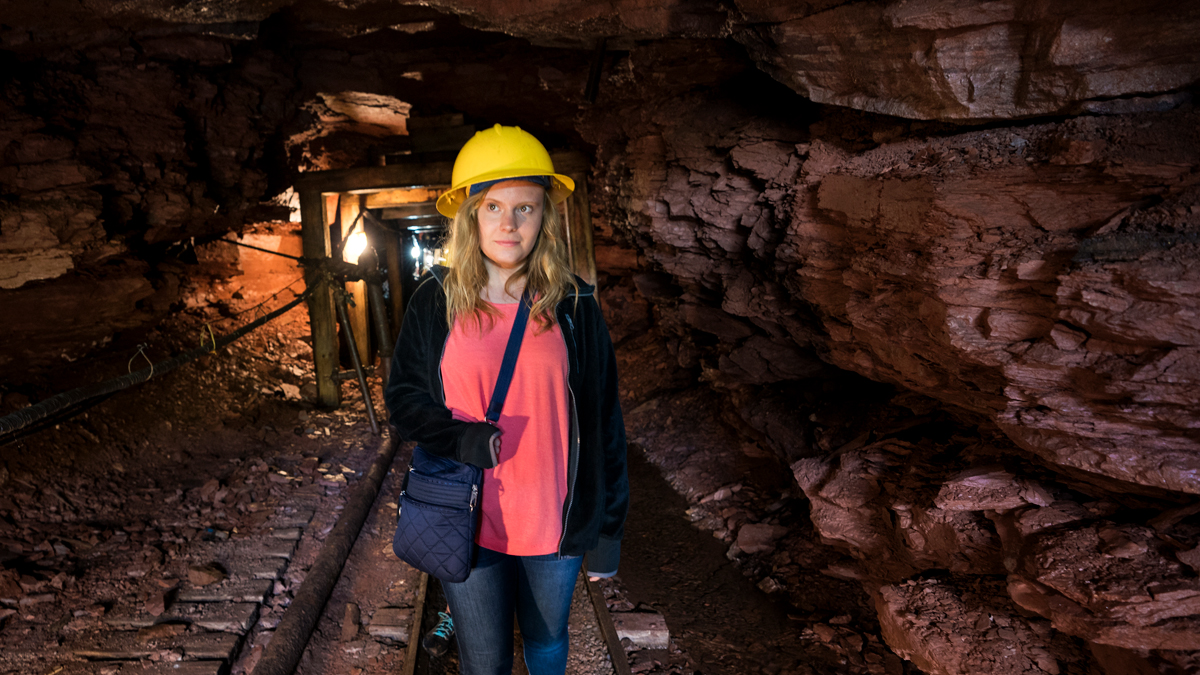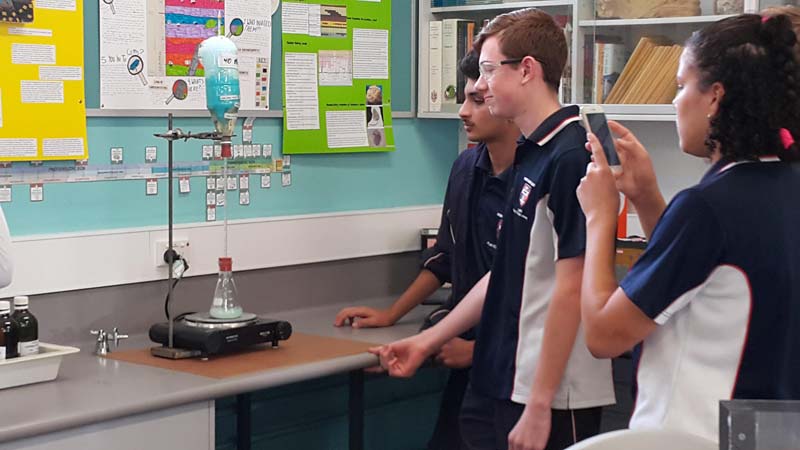Miners are hitting high schools in Perth to tackle a looming skills shortage – and it’s working

Picture: Getty Images
The changing landscape of mining jobs is seeing the industry turn to high schools and now even primary schools to tap future talent.
The mining industry’s rapid shift to automation and technological advancements is requiring a new breed of worker – the kind that has never known a world without tech.
Enter Gen Z.
The industry is working with students at Kent Street High School in Perth’s southern suburbs to mould the next generation of miners.
And they’ve got some pretty mad skills already. Check this out:
Stockhead spoke to a couple of Year 10 students at the Association of Mining and Exploration Companies (AMEC) Convention in Perth who have already started building their foundations for a career in mining.
Portia Claudius said she got an opportunity in Year Seven to see just how mining worked on a field trip to the Roy Hill iron ore mine in Western Australia’s Pilbara.
This prompted her to join Kent Street High’s CoRE program, which encourages students to explore possibilities and combine the sciences, technology, engineering, arts and maths to develop novel solutions to real-world problems.
“I don’t regret joining because I enjoy the research we do, the creativity and innovation,” she said.
“We learn so many skills like teamwork, project management, time management, all of that which is going to help us in a future career, if it’s in the resources sector or elsewhere.”
Claudius wants to forge a career on the environmental side.
“Because mining, even though it’s not a bad thing, people take it as like they destroy the environment, but they don’t because after rehabilitation they make it so much better than it originally was,” she said.
“I’m so interested in how they do that and how they help the Earth.”
Paola Cana Macahdo, meanwhile, told Stockhead she had developed a passion for robotics after she was shown how to use an electronic prototyping platform known as Arduino to create an interactive robot.

CoRE started out as a program created for students by students 13 years ago and has since evolved into a Centre of Resources Excellence that is expanding to WA’s Pilbara.
CoRE coordinator Kathleen Booth told Stockhead the program elevated the science, technology, engineering and maths (STEM) pathway from just a “bolt on” to an actual skill set students could learn.
“We want our students to be empowered to find innovative solutions,” she explained.
“We want them to leave us having the skills to back themselves, the skills to learn the concepts and the skills to manage themselves and market themselves in a way which makes them diverse across multi disciplines.
“It is about making sure we develop lifelong learners – learners for life and students who are passionate about industry, who see bright pathways and who see that they’ve got the ability to make change.”
https://www.facebook.com/CoRELearningFoundation/videos/249095889313111/
And the industry is going to need these bright young minds with the changing skillsets now required in the mining industry.
WA Mines Minister Bill Johnston said there were already around 200 driverless trucks in operation on Western Australia, with another 240 “coming soon”.
“That’s more driverless vehicles in Western Australia than in California,” he told delegates at AMEC.
“Autonomous technology is transforming other parts of our industry, including with Rio Tinto’s AutoHaul, which has been operating since July last year.
“We are rapidly evolving our industry here in Western Australia and by 2025 we expect that many Western Australian mines will be autonomous with decisions being made by machine learning and predictive analysis.”
Rio’s AutoHaul is the world’s first heavy-haul, long-distance autonomous rail operation.
But it doesn’t just start with high school students, according to Booth. Industry and educators need to now look at involving primary school kids.
“It can’t only be in the high schools. We need to make sure that we’ve got industry filtering down through tertiary pathways, not just university,” she said.
“We need to think about cadetships, on-the-job learning and the value of that.
“The creative, innovative mindsets that [these students] already have can get absolutely squashed through the university level, and we need to make sure that this filters down into our primary school as well.
“It’s about making sure those bridges are there and they’re there between industry, they’re there between the tertiary pathways, they’re there between our students in high school and that we can also build those bridges into the primary school too.”
- Subscribe to our daily newsletter
- Join our small cap Facebook group
- Follow us on Facebook or Twitter
CoRE doesn’t yet have primary school students, but they have already started to introduce them to industry.
“We are the only school that we know of in Australia that brings together primary schools, secondary schools, tertiary institutions and industry representatives within the resources sector to provide a day of challenges and problem solving,” Booth said.
But Booth would like to see greater industry participation.
“I would like to be involved in facilitating greater partnerships — not individual companies having an education program that they run for a couple of hours, that the involvement is more ongoing, that it’s more intertwined and that these students have that consistent exposure,” she said.
“It’s really easy in the world that they live in to be disrupted, and they have so many pathways and for those pathways to I guess become blurred.”
UNLOCK INSIGHTS
Discover the untold stories of emerging ASX stocks.
Daily news and expert analysis, it's free to subscribe.
By proceeding, you confirm you understand that we handle personal information in accordance with our Privacy Policy.








